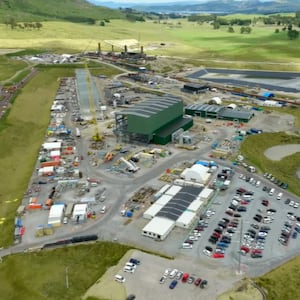Business
Industrial Users Push for Electricity Market Reform in New Zealand

Industrial users in New Zealand are calling for significant reforms to the electricity market as rising prices and a lack of confidence in the current system become pressing issues. Electricity generators have invested $10 billion in new generation capacity over the past decade and plan to invest an additional $6 billion in renewable projects by 2030. Despite this investment, industrial users express skepticism about the market’s ability to deliver fair prices and reliable energy.
Concerns Over Market Functionality
The existing electricity market has been described as dysfunctional, with industrial users feeling the brunt of high costs and limited transparency. Generators have historically enjoyed substantial profits, leading to growing frustration among industrial users who feel sidelined. As the landscape shifts, industrial users are questioning whether current market practices truly reflect the energy needs of New Zealand’s future.
Recent actions by electricity generators, such as initiating new builds and collaborating on firming options, seem to align with increasing regulatory scrutiny. This newfound cooperation raises questions about the motivations behind such moves. Industrial users argue that the current market structure fails to meet the long-term energy requirements of New Zealand and is instead focused on short-term fixes to evade intervention.
A Call for Long-Term Solutions
Advocates for reform stress the importance of establishing an electricity market structure that is sustainable and adaptable for the next century. They argue that simply responding to immediate challenges is insufficient. The call for reform emphasizes the need for a market that prioritizes both consumer needs and the sustainability of energy resources.
With rising costs impacting businesses, the urgency for a comprehensive review of the electricity market has become more pronounced. Industrial users are rallying for a system that not only addresses current pricing issues but also fosters innovation and investment in renewable energy sources. As the dialogue continues, it remains critical for all stakeholders, including consumers, to engage in discussions about the future of New Zealand’s energy landscape.
In summary, while investments in generation capacity are underway, the discontent among industrial users signals deeper issues within the current electricity market. As New Zealand navigates this complex terrain, the push for reform could shape the future of energy consumption and production in the country.
-

 World2 weeks ago
World2 weeks agoPrivate Funeral Held for Dean Field and His Three Children
-

 Top Stories2 weeks ago
Top Stories2 weeks agoFuneral Planned for Field Siblings After Tragic House Fire
-

 Sports3 months ago
Sports3 months agoNetball New Zealand Stands Down Dame Noeline Taurua for Series
-

 Entertainment3 months ago
Entertainment3 months agoTributes Pour In for Lachlan Rofe, Reality Star, Dead at 47
-

 Entertainment2 months ago
Entertainment2 months agoNew ‘Maverick’ Chaser Joins Beat the Chasers Season Finale
-

 Sports3 months ago
Sports3 months agoSilver Ferns Legend Laura Langman Criticizes Team’s Attitude
-

 Sports1 month ago
Sports1 month agoEli Katoa Rushed to Hospital After Sideline Incident During Match
-

 World3 weeks ago
World3 weeks agoInvestigation Underway in Tragic Sanson House Fire Involving Family
-

 Politics2 months ago
Politics2 months agoNetball NZ Calls for Respect Amid Dame Taurua’s Standoff
-

 Top Stories2 weeks ago
Top Stories2 weeks agoShock and Grief Follow Tragic Family Deaths in New Zealand
-

 Entertainment3 months ago
Entertainment3 months agoKhloe Kardashian Embraces Innovative Stem Cell Therapy in Mexico
-

 World4 months ago
World4 months agoPolice Arrest Multiple Individuals During Funeral for Zain Taikato-Fox

















